Getting Back At It: we survey band leaders on competition return and other shutdown issues
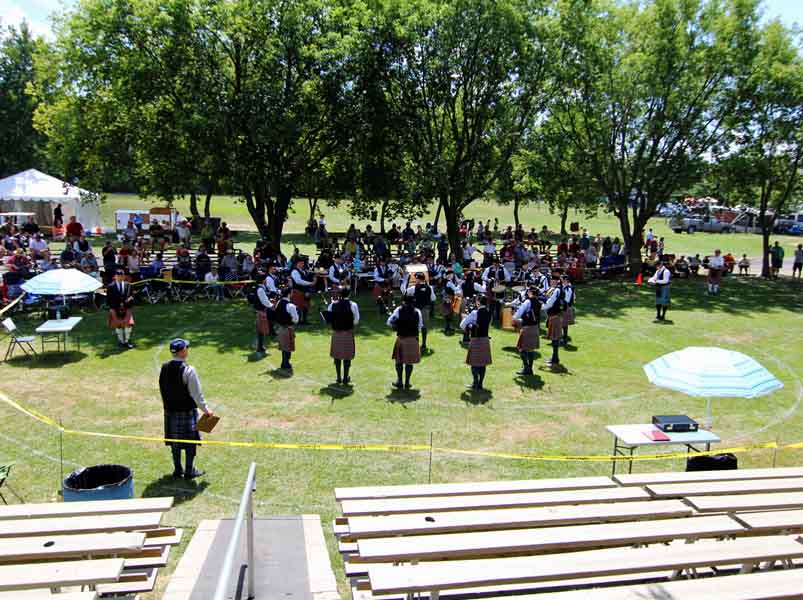
As vaccines are rolled out around the world, the piping and drumming world collectively hopes that a return to in-person competitions will be not just possible, but realistic and safe.
Unless there’s a surge in cases in Australia and New Zealand, we’re talking about the Northern Hemisphere. Great Britain and Ireland have been hit hard by COVID-19 and, at the writing are struggling to emerge from lockdown situations. Most of Canada has not fared much better, and the United States is also grappling to get things under safe control.
It’s one thing being able to schedule a Highland games or pure pipe band championship for the summer, hoping that large gatherings will be allowed by then. But whether competing bands will have had enough time to get up to adequate playing strength is quite another matter. Add to that possible travel restrictions, mandatory COVID testing, quarantines, and there are numerous unknown variables.
But what do affected pipe bands think?
We set out to ask pipe-majors and lead-drummers of the Northern Hemisphere’s Grade 1 and Grade 2 bands for their opinions on a range of questions, from getting back at it, to playing requirements, to how well their associations have supported them during the pandemic.
We elected not to include Australian and New Zealand bands, since the situation down under is dramatically and enviably different, with most bands currently able to practice and compete.
The response was very good, with 64 leaders completing the survey. We promised to use data only collectively, not attaching any information to specific people or bands. We invited them to provide written verbatim comments to most of the questions, again with the proviso that their name will not be included.
While we hope that those who speak are willing to put their name to their words (and many are), a survey like this has to be anonymous to be successful. The piping and drumming world is improving, but it is still politically charged, and the majority errs on a cautious side, speaking only on the condition of anonymity. As we said, open dialogue is increasing as associations and judges become more tolerant, receptive and thicker-skinned when it comes to the opinions of their own members.
pipes|drums also wants to provide a service to associations, which generally seem to have a hard time asking the members anything remotely controversial and, when they do, pipers and drummers might not trust the association to keep their information confidential.
We have also found that many event organizers, including even from some of the biggest contests in the world, have little understanding of the depth of preparation that bands undertake to be competition-ready. Some assume that pipe bands simply turn up and play. The results of this survey might help them, too.
Unfortunately, we have not compiled a list of leaders of the world’s hundreds of lower-grade bands. We appreciate that their opinions might be different from those at the top. In the meantime, we hope your association seeks your views.
The survey
We started with two questions to establish 1) whether the band was Grade 1 or Grade 2, and 2) in what country their band is based.
Overall, 54% of respondents were from Grade 2 bands, and 46% were from bands in Grade 1.
The breakdown of bands’ countries of origin:
- Scotland: 36%
- USA: 27%
- Canada: 18%
- Northern Ireland: 12%
- Ireland: 7%
- France: 1%
Just click on any of the charts below for a larger view.
(Pardon the interruption, since if you’ve made it this far you’re probably enjoying this article. But now’s maybe a good time to ask yourself how much you like reading this and other free pieces from pipes|drums. Perhaps you already subscribe and support your favourite nonprofit magazine and, if so, thank you. But if you haven’t yet subscribed, please do so that we can continue to keep features like this – which take a lot of time and not a little money – coming your way. You can subscribe or donate here.)
Question 3: How much in-person practice time will your band need to get back to an acceptable competition performance standard?
The total of all respondents shows some 64% say “Three or more months,” while 27% said “Two months” and the rest “One month.” Not one pipe band leader said “Less than a month.”
Interestingly, these numbers are right in line with the numbers (as of Feb. 7th) on our pipes|drums Readers Poll currently available on our front page:
Back to the survey of top-band leaders, broken out by Grade 1 and Grade 2 we see substantially more Grade 2 bands needing Three months or more:
And for bands based in Great Britain, Ireland and France, the numbers fairly match overall data:
And leaders from bands based in Canada and the United States, about the same:
Question 4: Do you think associations should reduce competition requirements to allow bands to return to standard faster?
Our next question sought to understand views on whether associations might lighten the load on bands returning by reducing playing requirements. Here’s the total of all respondents, with about two-thirds feeling that there is no need.
And the same question broken down by Grade 1 and Grade 2 leaders’ responses, showing slightly more Grade 1 bands thinking a reduction would be good:
There was no real variance based on country of origin.
Here are some of the verbatim comments on the idea of reducing musical requirements:
- “A medley and two MSRs isn’t too much to get sorted. Most bands will already have these requirements met from before lockdowns etc. It’s more getting bandsmen used to their instrument again and getting the tone sorted.”
- “Bands should encourage personal development and practice regimen throughout Pandemic to provide goals and ensure retention.”
- “Submit only one MSR and one medley.”
- “It’s more important for bands to be playing, so reduced requirements would be a big help.”
- “It will be tough for us to get going again and returning to ‘full strength.’ We’re almost at a year of no practices, and most members’ instruments are still under the bed from last March when things got locked down. Lighter or reduced requirements would certainly help up get to a better standard sooner.”
- “I really like what MWPBA is doing with one event per grade, and G2 submitting one of each. I believe this will prove very positive for their bands, and I hope it’s adopted by all other associations.”
- “There has been ample time during this period to learn new music. I don’t think minimizing the requirements is a step in the right direction or really would have much of an impact on the preparation time required to compete.”
- “Maybe for this season if it happens bands play own-choice as in instead of putting forward two MSRs they can choose, just due to COVID and lack of band rehearsals.”
- “We shouldn’t dilute the quality or standards of our grades. I think that will ultimately lead to a discombobulated global standard, and we had enough of a challenge in the States with hitting the mark before the pandemic. No need to further confuse us for future seasons. Bands have had access to Zoom, Skype and all the recording technology to keep players engaged throughout the pandemic. A month or two to blow off the cobwebs should be enough to get back to the level.”
Question 5: Are you willing to accept playing to a lower standard in order to return to competition?
Okay, so we all want to get back at it as soon as possible, but are competing bands willing to perform at a standard less than what they are capable of producing? We all know what we can produce, but perhaps it’s worth it to sacrifice quality for mere participation.
Taking all the data, a majority of 57% said, “Yes, we just want to get back at it.”
And comparing Grade 1 and Grade 2 the numbers are fairly consistent across the grades, as well as country-to-country:
Question 6: Would you like to see new contest playing format(s) (e.g., longer anything goes medleys) to allow for more creativity?
We have written about the silver lining opportunity that the pandemic might present when it comes to rethinking or experimenting with competition musical formats.
Overall, the feeling is literally 50-50, with exactly half of the respondents welcoming musical change, the other half wanting the status quo:
Broken out by grade, we see leaders from Grade 2 bands more conservative than those from Grade 1 where 55% want musical change.
Bands from Great Britain, Ireland and France are fairly equally divided on the idea:
There’s more openness to change with bands from North America:
Let’s have a look at some of the verbatim comments to this question:
- “I think the time restriction on medleys at 5-7 is quite restrictive, especially with the shrinking size of Grade 1. Why not give the chance to play from 6-10 (or whichever limit is agreed upon) to really show what the band is capable of. I do enjoy a well-played MSR though. That being said, the pipe band MSR is similar to a solo piper with piobaireachd. It isn’t always what’s best for crowds.”
- “I do like the idea of some kind of anything goes medley just not sure if the majority of pipers and drummers would be willing to sacrifice what’s already in place, however a concert format on a stage has always been of interest, the listeners or audience always comment about how they expected more than what’s there at the Worlds, everyone can see and hear the great music so maybe it’s time to at least try something new!”
- “I think this idea, as well as concert format, is a direction I think is needed. That said, concert formation in the middle of a field doesn’t make a lot of sense to me. A stage or at least having risers would be a start. The implementations at contests like Chicago and Montreal are severely lacking and are more about public relations than pushing the art forward.”
- “I would like to see (in Gr.1) a change to the MSR. I know the topic has been beaten to death, but one thing that has not been suggested is an MSR draft. Release new set tunes annually. The lowest placing band from the previous world championship picks first, etc. with the winning band ultimately playing the only tunes remaining. Guaranteed we won’t hear the same tune twice!”
- “Let’s bust open what we’re able to do. Let’s bring in other instruments, and expand the music. Let’s try to appeal to a wider audience (beyond grannies and reluctant spouses in the audience) with the music we produce.”
- “Anything different would be difficult. Just want to get back out.”
- “Whilst I’d like to see a change in format, I don’t think now would be a good time.”
- “Yes, however, this was discussed amongst pipe-majors and lead-drummers back in August and typical of the RSPBA – we have radio silence.”
- “Now’s the time for the association to link in bands when there is no season and implement early so bands can use this time to think and prepare for next year’s role out. Keep MSR as a traditional element.”
Question 7: When competition returns, should judges place less emphasis on precision and more on musical performance?
Okay, so, with bands coming back and maybe not being in top form, is it an opportunity for all judges to shift their dominant ear to the music rather than the strictly technical? Of course, every judge out there will say he or she always listens to both music and precision in equal measure, but few if any competitors will believe it. They see judges routinely pouncing on mistakes and matters of tuning, appearing to ignore the big picture.
Here’s what all respondents combined said, with 62% fine with the same judging methods, perceived or real:
Showing Grade 1 and Grade 2 leaders separately, more from the ultimate grade prefer maintaining the same approach, while slightly more in Grade 2 would like to see a leaning to music by judges:
When we go country-to-country, there wasn’t much deviation in results.
Some verbatim comments to this question:
- “I believe that tuning, unison/technique have become the standard method of evaluation because they are ‘tangible’ benchmarks for adjudicators to anchor their results. This is fine for the sake of consistency, but it diminishes the subjective value of the music. Let’s have judges simply judge the performance. Eliminate the ‘piping,’ ‘drumming,’ and ‘ensemble’ titles, and allow them to focus on the overall performance. This may reduce the reliance on specific technical areas in each corps to produce the result.”
- “The music is extremely important, but I think the ‘full package’ needs to be considered. No point putting a fancy medley together that can’t be enjoyed because the band isn’t well-tuned and harmonies sound off.”
- “The standard to which judges are taught to judge doesn’t allow for much in the way of creativity. With the same items and notes being duplicated by every judge on each crit sheet, there again is limited scope to diversify bands and make each one unique”
- “It’s always about the music. Being precise and in tune is about the grade.”
- “I think all areas of the performance should be considered and that a performance should, of course, be musical, but I would not like for precision to become a side-thing.”
- “Third option: tuning and unison are inseparable from musical performance do not sure this is an either/or choice”
- “The right answer is it should be both, not one or the other”
- “In my opinion, there hasn’t been enough credit for a performance being musical for a long time. It is too easy to lower a band’s placing based on tiny inaccuracies.”
- “Music is always tops in my books, but it’s hard not to want/chase that iconic, precise FMM sound that sends shivers down your spine!”
- “I think it all needs to go hand in hand. What pleasure is there when listening to a very musical performance if the instruments are out of tune and the unison is sloppy (unless you’re the Ramones)?”
- “Judging on musical performance is something I like the idea of, but I don’t like the idea of all of the existing panel giving me thoughts on what they think. A lot of the existing judges do not come across as people that are doing their best to remain current. Judging a medley on 1970s or ’80s ideas rather than what the best bands can do right now won’t motivate anybody to change what they’re doing.”
- “Technique is the key that opens the door to musicality. Without proper technique and acceptable tone we can’t truly express the music, in my opinion.”
Question 8: Do you think your association has done enough to support its member bands during the pandemic?
About 18 months have passed since the last full pipe band competition in the Northern Hemisphere. We thought it would be interesting to hear thoughts on how leaders’ home association has responded during the crisis.
Overall, slightly more than half said that their association has not done enough:
When we separate out Grade 1 and Grade 2 we see a sizable difference, with 65% of Grade 1 band leaders feeling that their association hasn’t supported them enough, while only 41% of Grade 2 leaders said the same:
When we look at British, Irish and French bands specifically, only 26% think their association has supported them enough. That’s a strong criticism from three-quarters of respondents:
And here are the numbers from the North American band leaders, who pretty much flip the UK/French data:
Some verbatim comments to this question follow and, interestingly, we received substantially fewer comments here:
- “My association provided on-line competitions and educational forum initiatives and in my opinion are to be commended for their effort.”
- “Perhaps membership fees could have been used to support young players in some way e.g. online workshops or contests.”
- “The association has offered opportunities for learning that were not embraced by bands, many who have just stopped meeting.”
- “What have they done exactly?”
- “There has been no consultation with bands on anything. Feel as though the RSPBA think that they put on the contests and what more could we want from them.”
- “There are more priorities than pipe bands. Don’t know how they could have helped.”
- “I’m not really sure what an association can be expected to do for its member bands at a time like this, other than waiving dues for 2021.”
- “It’s a tough go for everybody. I think associations could be doing more, but all deserve a “pass” given the exceptional circumstances of this global pandemic.”
- “EUSPBA has been very progressive.”
- “My association hasn’t done a single thing except request dues.”
Question 9: As things stand now, do you expect your band to compete in 2021?
Ultimately, the big question of whether leaders anticipate actually getting out to compete this year. Remember, the survey was conducted between January 28th and February 7th. Things are changing week to week. But here are the overall totals from that point in time, with only a quarter of leaders optimistic about a return to competition this year:
Broken out by grades, not too much deviation from the overall totals, but slightly more optimism from Grade 1:
Looking at UK and French bands only, we see only 17% thinking they’ll compete in 2021:
And North American bands are overall more optimistic, perhaps driven by bands in areas that might be opening up a bit faster. It’s a large geographical area:
Lastly, we invited respondents to say whatever they’d like to the overall subject of the survey. Here are a few verbatim comments:
- “The most important thing for bands and their individual players is to stay motivated and support/encourage one another. Moreover, regardless of how we feel about our associations, they are hurting and need our help. Collectively, our community needs to rally behind these volunteer leaders and offer assistance or support to ensure financial and operational stability so we have a forum to play when the pandemic is over. Also, we need to think about how we can rally our games organizers and sponsors to keep them close to the fold. Many of these groups operate independently from the associations and will require the same encouragement and patronage to keep our performance platforms afloat.”
- “I hope to be able to play as a band again soon, but for most of us this is a hobby (a very dedicated hobby!) and health and safety come first.”
- “Let’s hope we can get on the grass, even for a World’s in August or September, that would be just brilliant!”
- “Think it is looking unlikely for restrictions to be relaxed enough for there to be a season in Scotland in 2021, but we are very keen to get out and play as soon as possible.”
- “Competition for 2021 should just be thrown out altogether. We should focus on celebrating folks who haven’t just tossed their pipes and drum sticks to the side permanently because this sport doesn’t pay us to do it and if we choose not to participate it’s dead. Roster size should really be a focus and these mega-rosters are incompatible with pandemic and immediate post-pandemic return to form.”
- “RSPBA living in a dream world with the season still being on in my opinion. Linked to your questions to get a season we’d have to start again before vaccine rollout to our ‘young band.’ Not a chance I’d put my members at risk. Likelihood back to practices Jan 2022. RSPBA should use this time to call off the season early, link in with bands on possible changes so any change can be communicated early so bands can get working at home.”
- “Honestly, it will be difficult for our band to recover from this. Hoping to regroup in the fall of 2021 but it may not happen.”
- “The decisions have to be taken now to cancel the 2021 season, I would not feel comfortable playing this year.”
- “This is an opportunity for the RSPBA to engage in dialogue with its members to make changes to the current competition formats, something which so far is yet to be done. It also astonishes me that the RSPBA are intending/hoping to proceed with the 2021 calendar without consulting with their member bands.”
- “At this point, I think the 2021 season will be a wash. Scotland is effectively locked down, and I don’t see bands making the trek as a pragmatic, realistic way to go. If given the chance, games that do go ahead in 2021 will struggle: bands aren’t prepared, will struggle to get back up to 5th gear and I suspect most members don’t want to travel anyway until it’s safe.”
- “It’s a tough time for everyone right now, however articles and communication from the likes of Pipes/Drums does help keep everyone in the loop, I often refer to this to find out what’s going on as it seems to be more up to date than some other outlets! I really hope we can get back to competing soon safely and responsibly, you don’t miss something till it’s gone, I really hope individuals in bands can keep their own piping and drumming skills going and that bands don’t suffer from the lack of practice and competitions.”
- “It isn’t responsible at the moment to consider having band practice. Zoom can’t replace the real thing, in-person playing with tone and ensemble. Even if things improve drastically, planning a 40-person trip anywhere for 5-7 months from now isn’t something that I feel good about or would ask my band to do.”
- “Here in the States, we can reasonably expect a late season, with contests like Loon and Stone Mountain, perhaps the Celtic Classic in Bethlehem, Pennsylvania, and others we hope G2 bands will be included in.”
Thank you to all of the Grade 1 and Grade 2 band leaders who helped with this survey. Only by asking questions can we get information, and only by listening can we make good decisions. We encourage you to keep the dialogue going, and please use our comments tool to provide your thoughts.
One thing is unanimous: we all hope to get back to in-person competition as soon as it is safe and practical to do so.
Related
 Maxville 2021 officially cancelled
Maxville 2021 officially cancelled

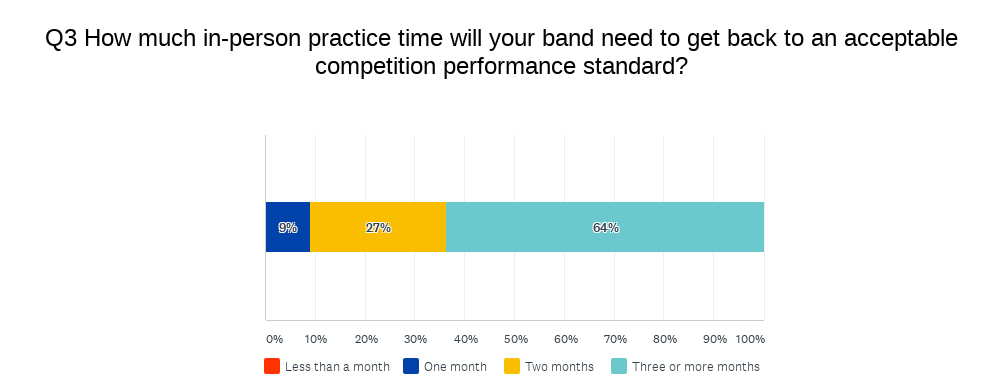
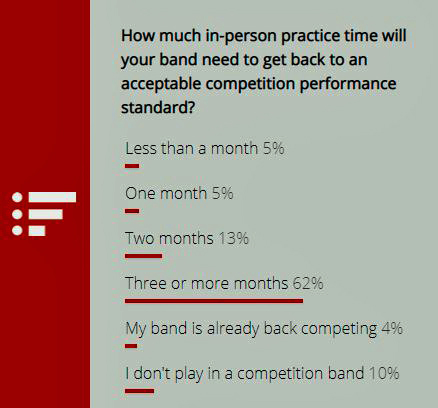
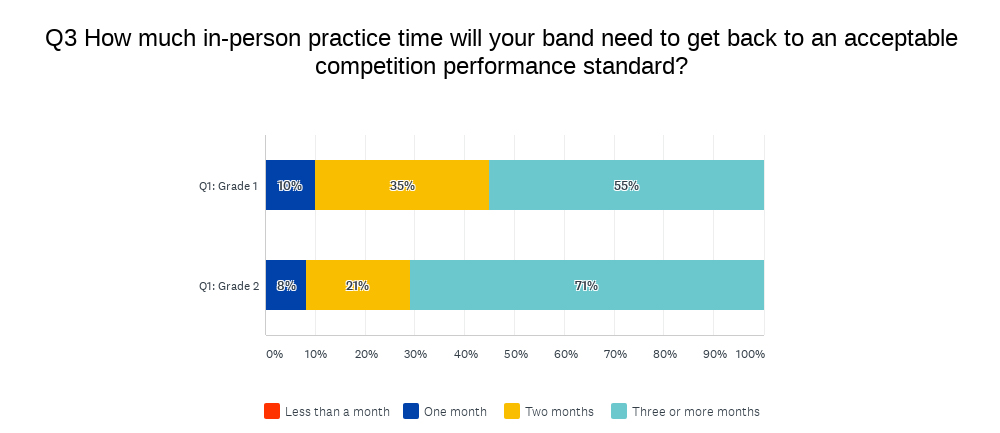
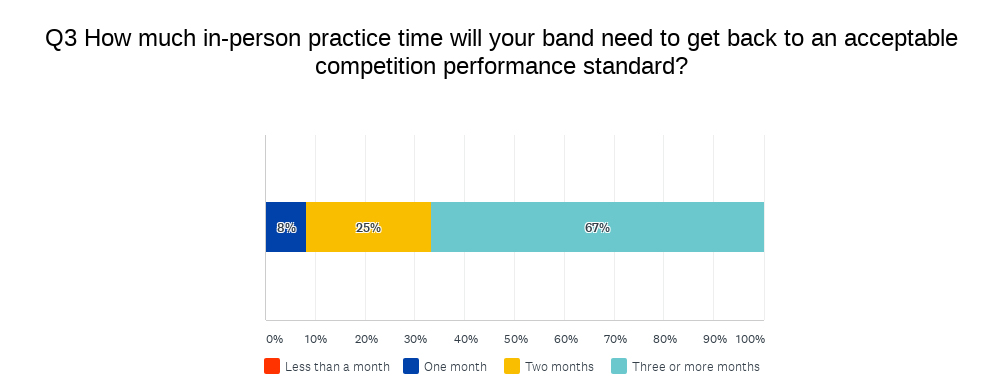
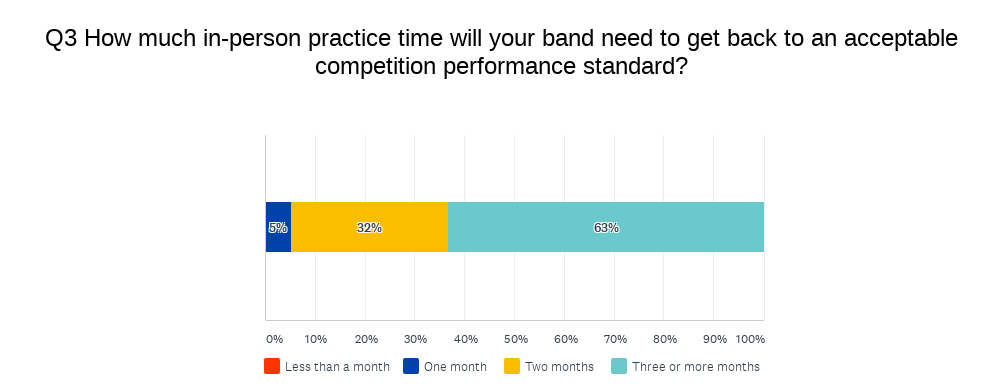
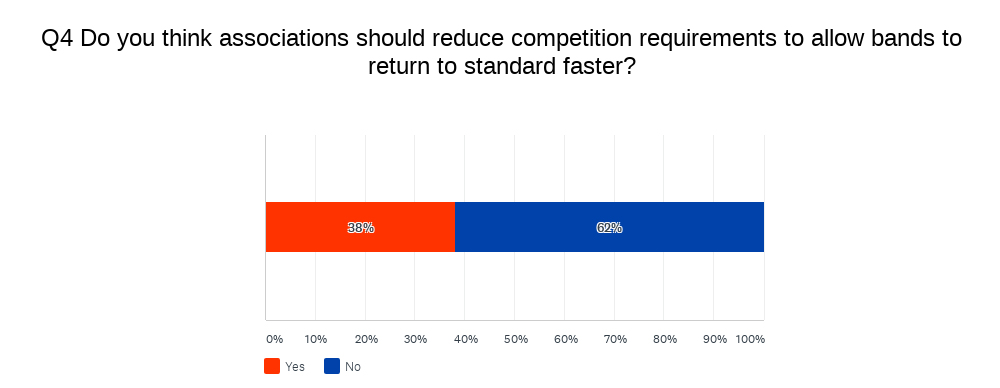
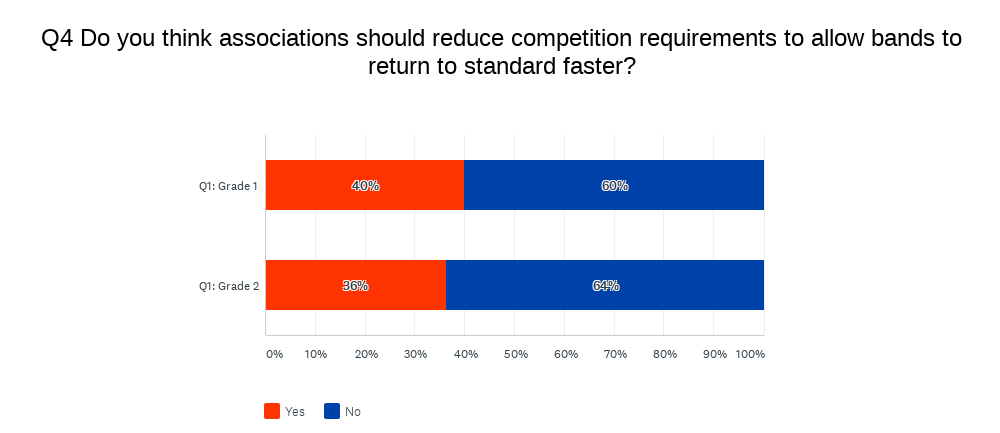
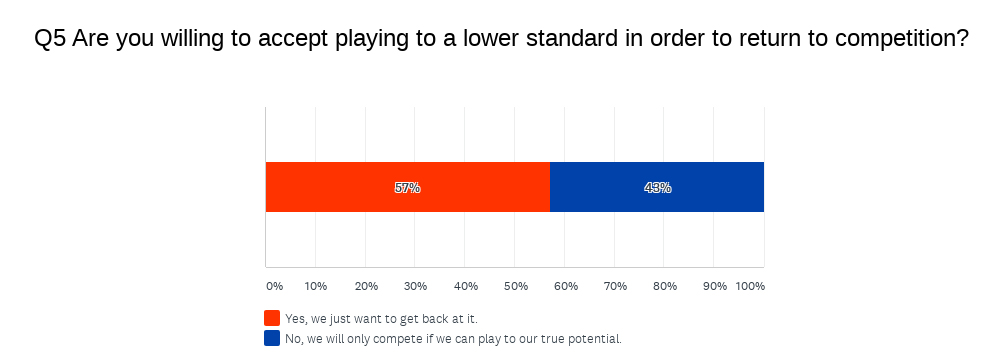
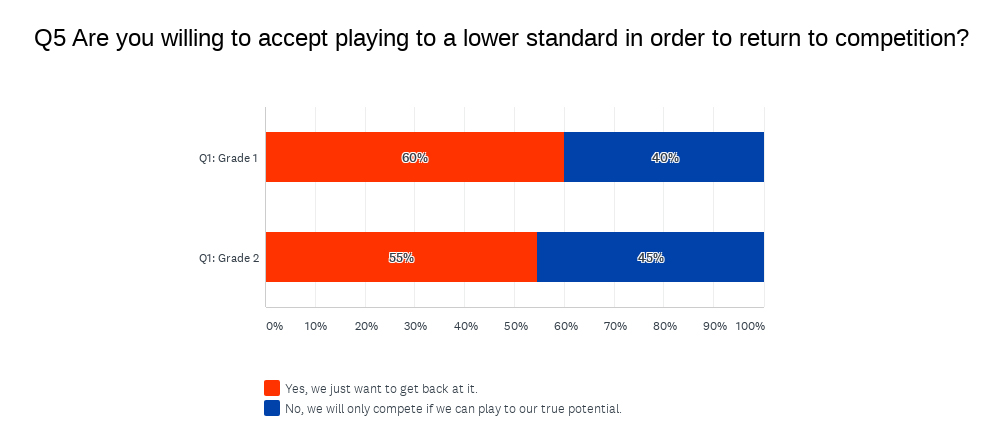
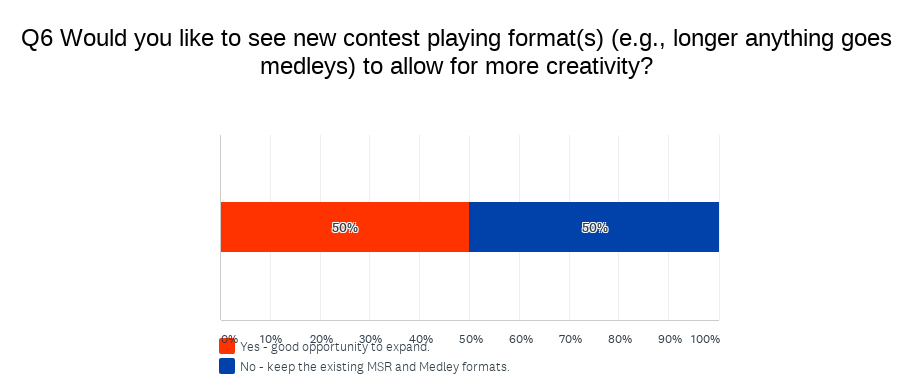
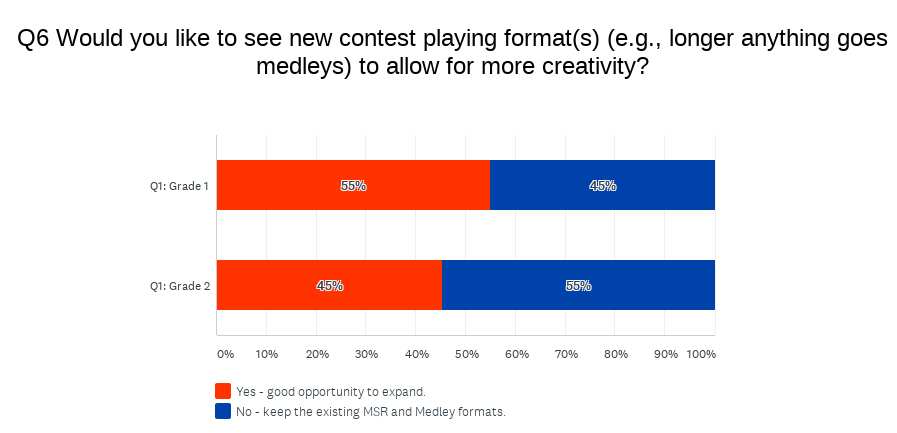
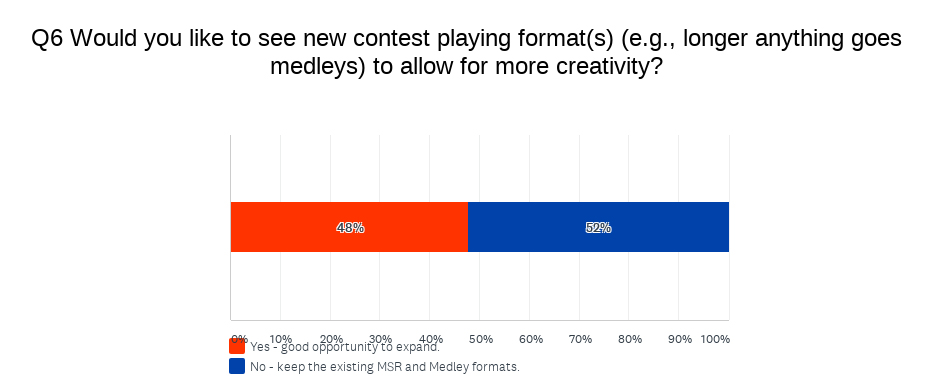
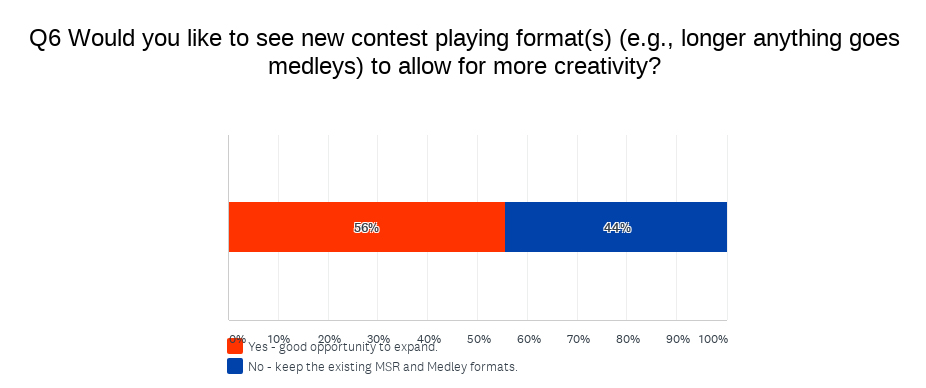
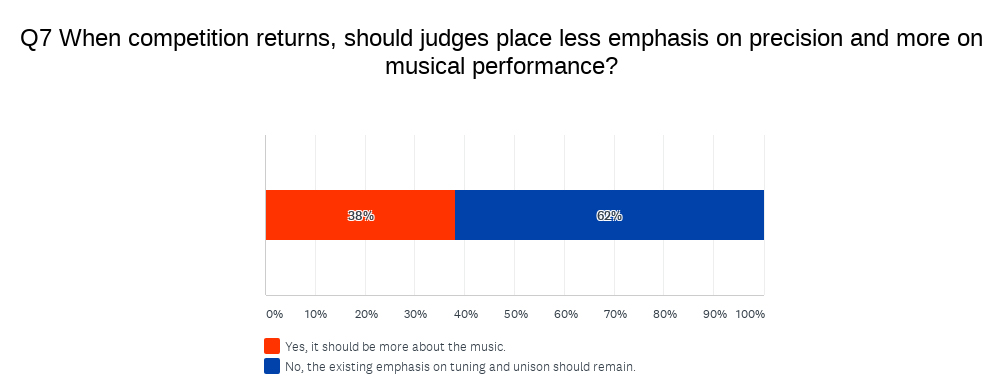
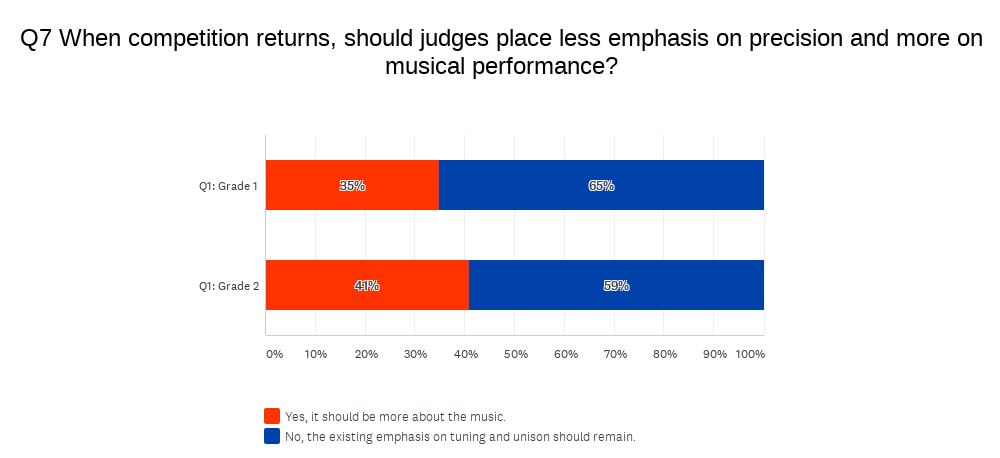
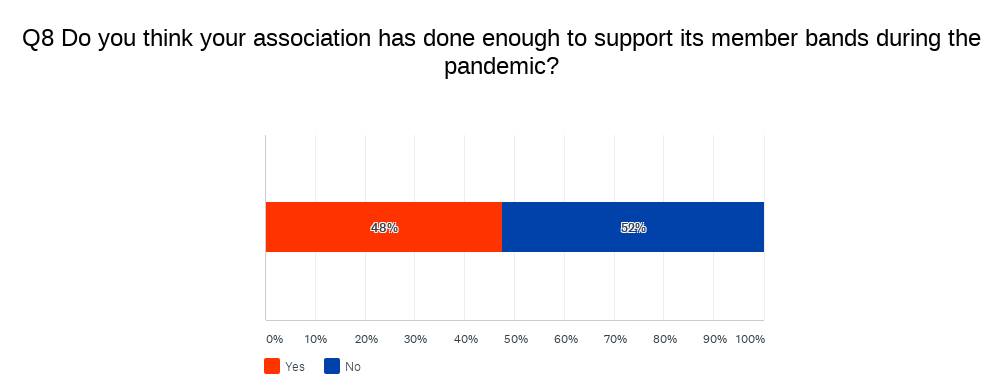
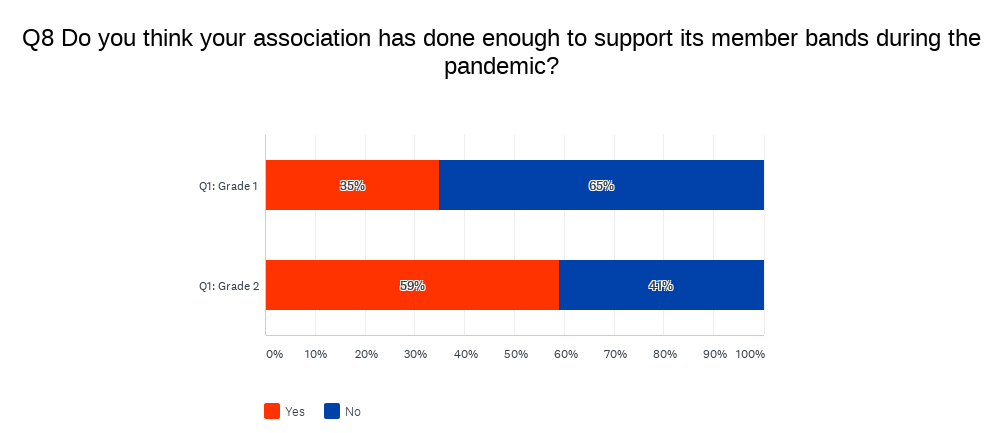
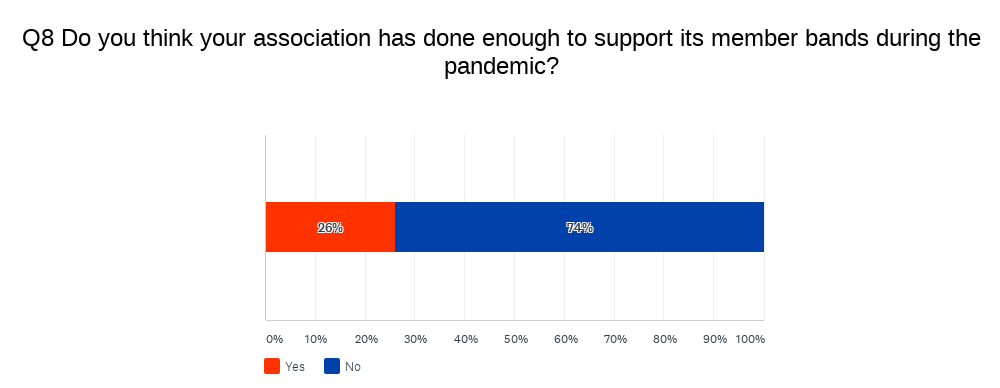
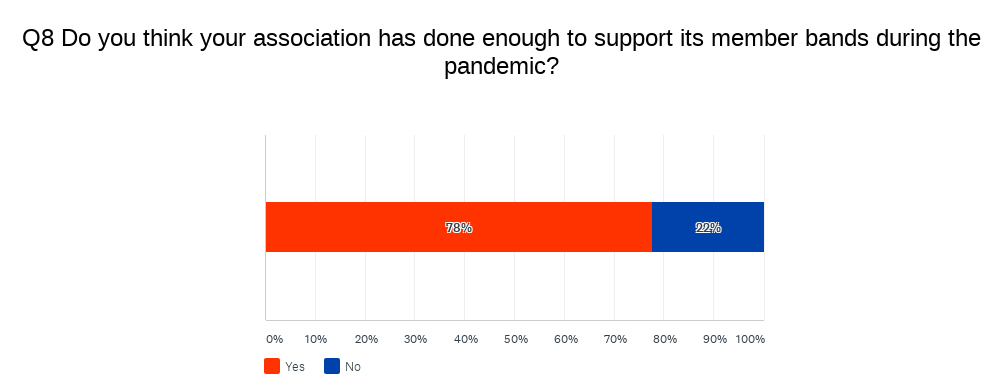
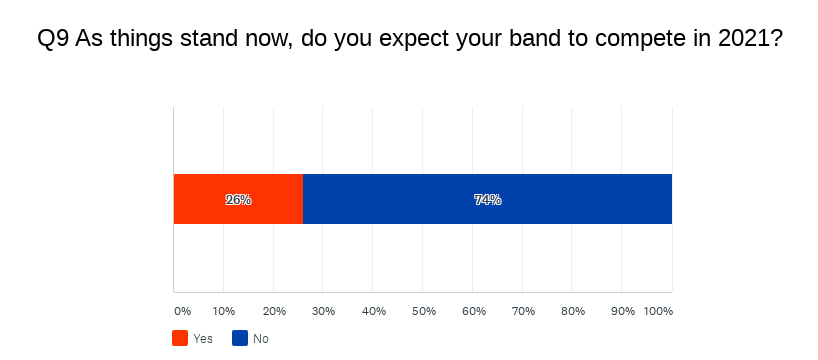
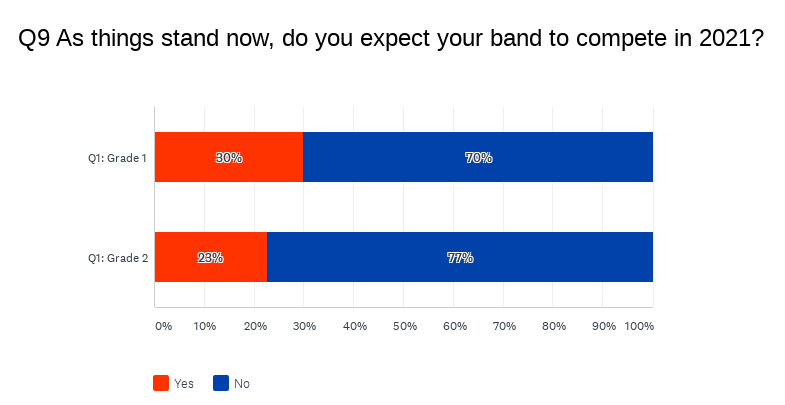
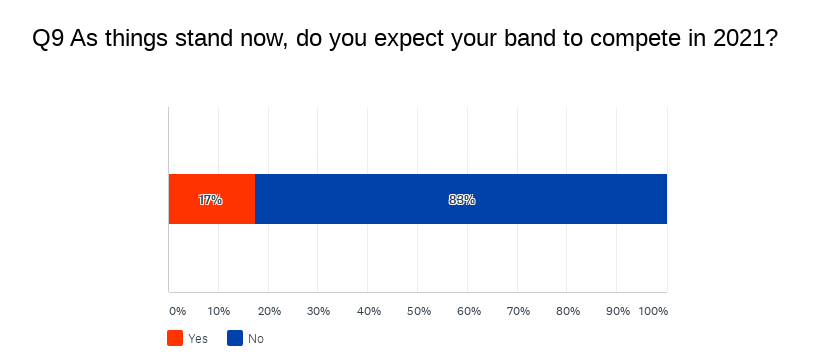
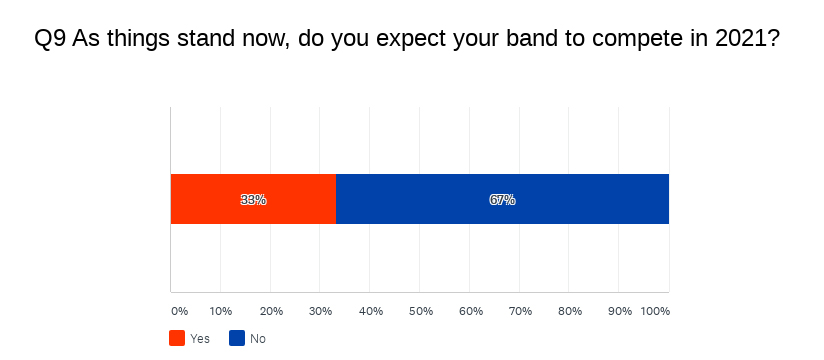




NO COMMENTS YET